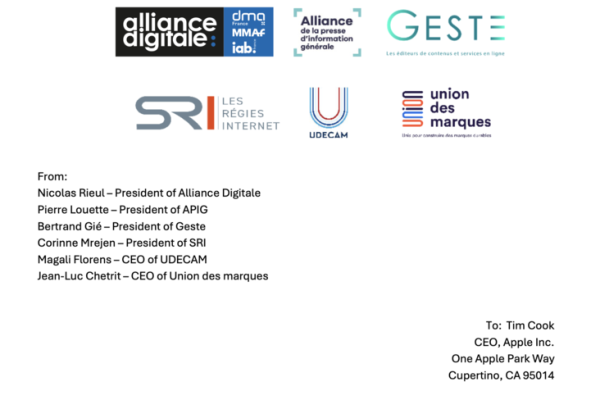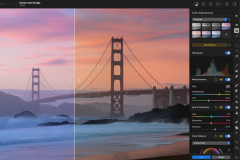Since September 2024, Apple has been offering the "Distraction Control" feature on its Safari browser, enabling users to manually hide advertising windows and pop-ups. This new feature has prompted strong reactions from the French media and advertising industries. A coalition of professionals sent an open letter to Apple calling for the suspension of this feature, deemed dangerous for the economy of publishers and compliance with current regulations.
One of the main concerns raised by the advertising industry is the economic impact of the "Distraction Control" tool. By allowing users to hide banner ads, this feature could significantly reduce the advertising revenues that underpin much of the online media's business model.
Deputy Managing Director of Alliance Digitale, "it's part of the economic model of the entire press, media, pure players and content providers that would be amputated."
Beyond the economic issues, the signatories of the open letter point to a major problem of compliance with European data protection laws, in particular the General Data Protection Regulation (GDPR). Allowing users to hide cookie consent windows could jeopardize publishers' ability to comply with consent collection obligations. "Distraction Control" could thus undermine the transparency mechanisms needed to ensure that users' personal data rights are respected.
The request for suspension is partly motivated by Apple's lack of transparency regarding the operation of "Distraction Control". The signatory associations criticize the Cupertino-based company for not having communicated sufficiently on the technical aspects of this feature and its potential evolutions. It is also feared that this functionality, currently manual, could become automatic in the future, which would further exacerbate concerns about its impact on advertising revenues and legal compliance.
Another danger raised by media professionals is the possibility that "Distraction Control" could facilitate the manipulation of information. By allowing certain editorial or copyrighted content to be hidden, this feature could be abused to alter or censor essential information. This potential drift is particularly worrying at a time when trust in information sources is already under threat.
Faced with these economic, legal and social challenges, advertising and media players are not ruling out legal action against Apple if their demands go unheeded. This open letter is the second sent to the company, the first having gone unanswered. In the absence of a satisfactory response, the coalition of advertisers could go to court, citing potential violations of data protection rights and competition principles.












